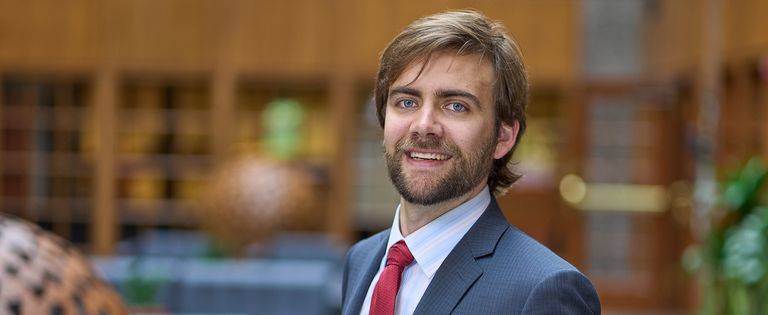Decision Alert: Supreme Court Holds That Former President Donald Trump Is Absolutely Immune From Criminal Prosecution for His Official Acts but Remands Case To Lower Courts To Determine Whether He Is Immune for Other Conduct While in Office
Legal Alerts
7.29.24

On July 1, 2024, the Supreme Court issued a historic decision in Trump v. United States, holding that a former president is entitled to immunity from criminal prosecution for official acts undertaken while in office. Chief Justice Roberts authored the opinion, joined by Justices Thomas, Alito, Gorsuch, and Kavanaugh. Justice Thomas filed a concurring opinion. Justice Barrett filed an opinion concurring in part. Justice Sotomayor filed a dissent, joined by Justices Kagan and Jackson. Justice Jackson also authored a dissent.
As summarized in Dykema’s May 2024 edition, former President Donald Trump was indicted by a federal grand jury on four counts arising from his actions following the 2020 election. President Trump moved to dismiss the indictment based on presidential immunity, arguing, inter alia, that he could not be prosecuted for official acts unless he was first impeached by the House and convicted by the Senate. The District Court denied his motion, holding that former Presidents are not entitled to absolute immunity for official acts. The D.C. Circuit affirmed, citing Marbury v. Madison, its progeny, and the Separation of Powers as authorizing the federal judiciary to oversee the criminal prosecution of former presidents for their official acts, reasoning that an alleged violation of criminal law by a then-sitting president is necessarily outside the scope of lawful discretion and thus properly subject to prosecution.
The Supreme Court reversed. Focusing on the “enduring consequences” of the balance of power inherent in our constitutional structure, the Court held that a former president is entitled to “absolute immunity” with respect to “core constitutional powers,” that is powers exclusively within the purview of the president, like the power to command the Armed Forces, pardon the convicted, and remove executive officers derived from Article II of the Constitution. The Court observed—and noted that no party disputed—that there is no immunity from prosecution for unofficial acts. The Court expressly did not decide whether presidential immunity for official acts must be absolute “or instead whether a presumptive immunity is sufficient.”
With the limits of its decision in place, the Court remanded the case to the lower court—with certain guidance and guardrails regarding the constitutional limits of presidential immunity—to determine which of the indicted acts qualify as official versus unofficial acts. Acknowledging the relative lack of precedent regarding presidential immunity, the Court observed that some official acts might not be within a president’s exclusive authority and may run concurrent with the express or implied authority of Congress. In those circumstances, the Court reasoned, the rationale for absolute immunity for official acts over which a president has singular authority may not apply to acts where he has shared authority with Congress. Taking into account the competing interests of chilling intrusion into the Executive Branch and the redress of public wrongs, the Court concluded that a “presumptive immunity” from criminal prosecution applies to presidential acts on the “outer perimeter” of official responsibility as necessary to protect a president’s ability to carry out executive duties without fear of political retribution once he leaves office. This presumption could be overcome, according to the Court, by showing that criminalizing certain conduct would pose no “dangers of intrusion on the authority and functions of the Executive Branch.”
The Court, citing precedent, cautioned that in determining whether conduct was taken in an official or unofficial capacity, courts may not inquire into the motives behind such actions and that an action is not unofficial merely because it allegedly violates the law.
Applying the principles outlined in its guidance, the Court held that President Trump is absolutely immune from prosecution for acts involving his communications with Justice Department officials and the Vice President about the results of the 2020 election because they implicated the President’s exclusive authority. The Court remanded the other indicted acts, for instance President Trump’s interactions with private parties and his social media communications with the public, as they required fact-intensive inquiries and findings of fact before a legal assessment could be made as to whether those acts qualify as official or unofficial.
In a concurring opinion, Justice Thomas questioned whether the Attorney General could appoint a private citizen as Special Counsel to prosecute a former president on behalf of the United States. In a concurring opinion, Justice Barrett proposed a separate two-step analysis to assess the validity of criminal charges against a president based on official acts.
In her dissenting opinion, Justice Sotomayor accuses the majority of inventing “an atextual, ahistorical, and unjustifiable immunity that puts the President above the law.” Justice Sotomayor further argues that the test for official and unofficial conduct endorsed by the majority necessarily makes unofficial conduct vanishingly small because the motive behind such conduct cannot be examined. In her separate dissenting opinion, Justice Jackson decries what she calls the “structural consequences of today’s paradigm shift” away from the individual accountability model solely for presidents.
Takeaways
- Due to the Supreme Court remanding the case while providing limited guidance on such a unique issue, the main takeaway is that no firm conclusion in this matter can be drawn until the case comes back up to the Supreme Court with a more comprehensive record of constitutional legal conclusions based on a fully developed factual record.
- Incidentally, Judge Cannon, who had been overseeing the classified document case in Florida related to President Trump, seemingly relied on Justice Thomas’s concurring opinion in dismissing that case.
For more information, please contact Chantel Febus, James Azadian, Cory Webster, Christopher Sakauye, Monika Harris, Puja Valera, or A. Joseph Duffy, IV.






